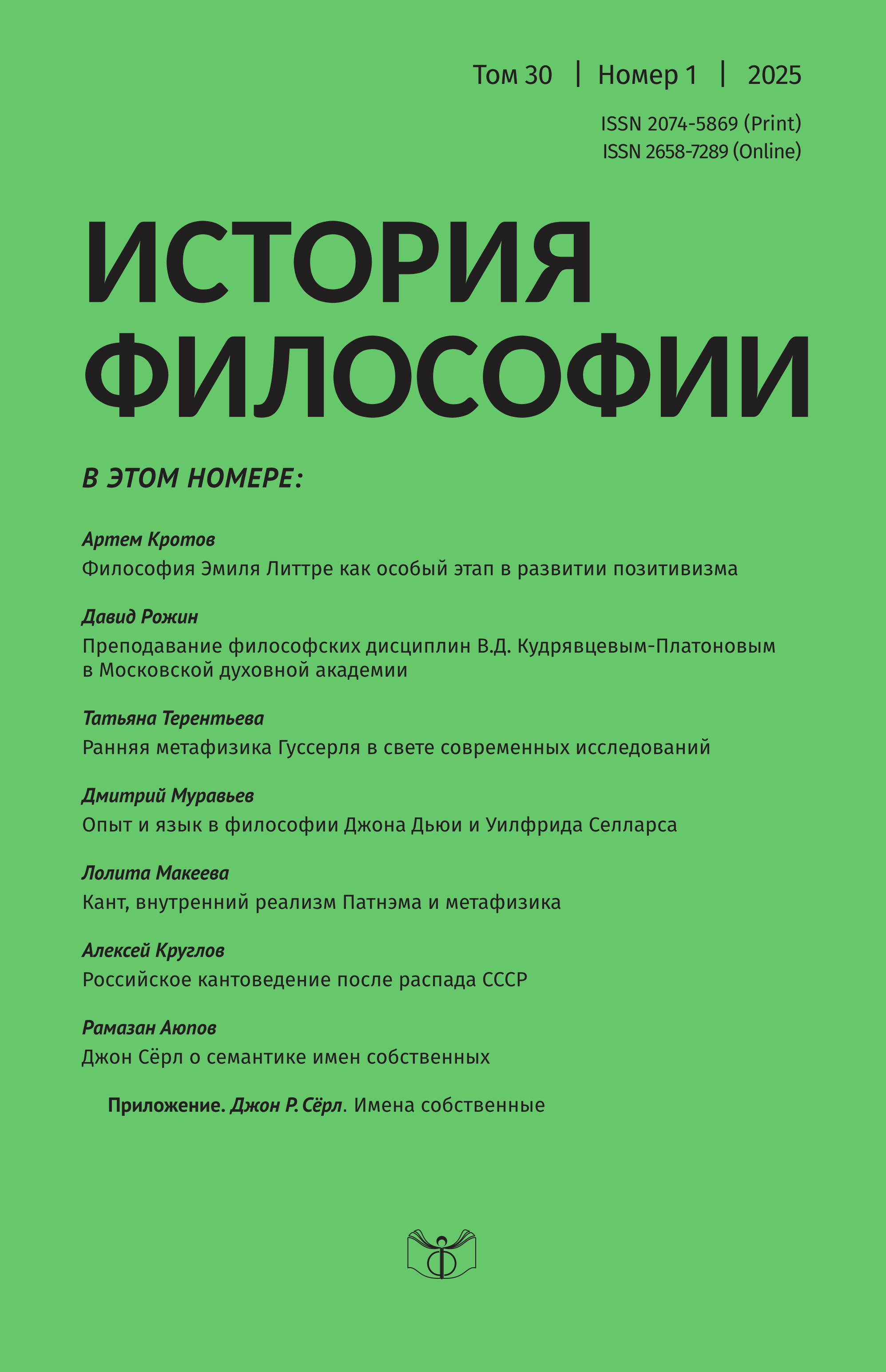John Searle on the Semantics of Proper Names
John R. Searle. Proper Names / Translation and commentaries by Ramazan I. Ayupov
DOI:
https://doi.org/10.21146/2074-5869-2025-30-1-101-114Keywords:
John Searle, Gottlob Frege, proper names, sense, reference, descriptions, identity, presuppositions, cluster theory of proper namesAbstract
The purpose of this article is to acquaint Russian-speaking readers with one of important works in analytic philosophy of language, dedicated to the semantics of proper names, namely with the article “Proper Names” by the American philosopher John Searle, published in 1958. Searle defends the so-called descriptivism view, according to which proper names possess not only reference but also sense expressed by definite descriptions. Searle sees his task in revising the descriptivist approach created by Frege and Russell and taking account of the peculiarities of functioning which proper names have in contexts of ordinary communication. The center of Searle’s focus is a problem known as “Frege’s puzzle” which concerns the difference in cognitive value of two kinds of identity statements a=a and a=b, containing proper names. Searle’s solution can be presented in the following theses. First, like Frege, Searle acknowledges that proper names have senses. However, he rejects the idea that the sense of a proper name is equivalent to a definite description. Second, Searle argues that the referential use of a proper name presupposes the existence of at least one true description that uniquely identifies its bearer. Third, Searle introduces the concept of “descriptive presuppositions”, defining the sense of a proper name as a cluster of such presuppositions, united in an inclusive disjunction. Thus, Searle finds the explanation of why an identity statement of the form a=b sometimes is used as analytic and sometimes it is used as synthetic. It depends on whether descriptive presuppositions of the names a and b are the same. Despite the subsequent criticism of this solution by proponents of the direct reference theory, John Searle’s theory remains significant in the context of discussions on the semantics of proper names.

